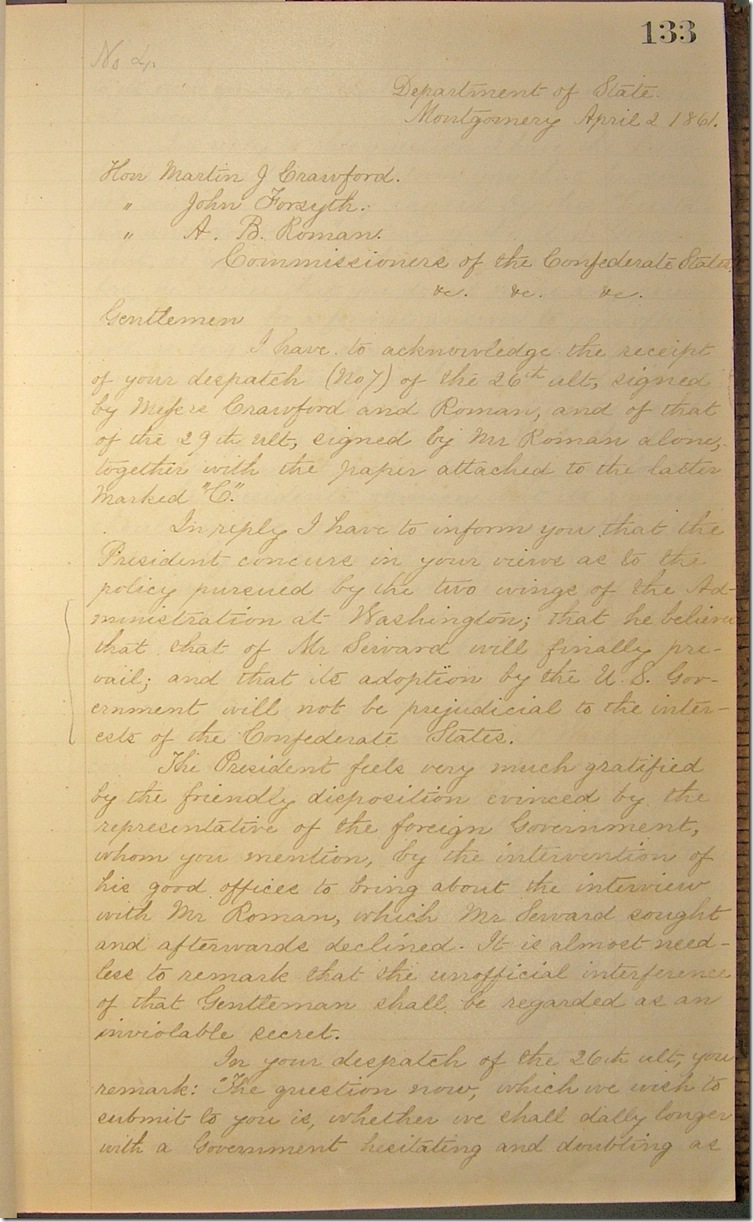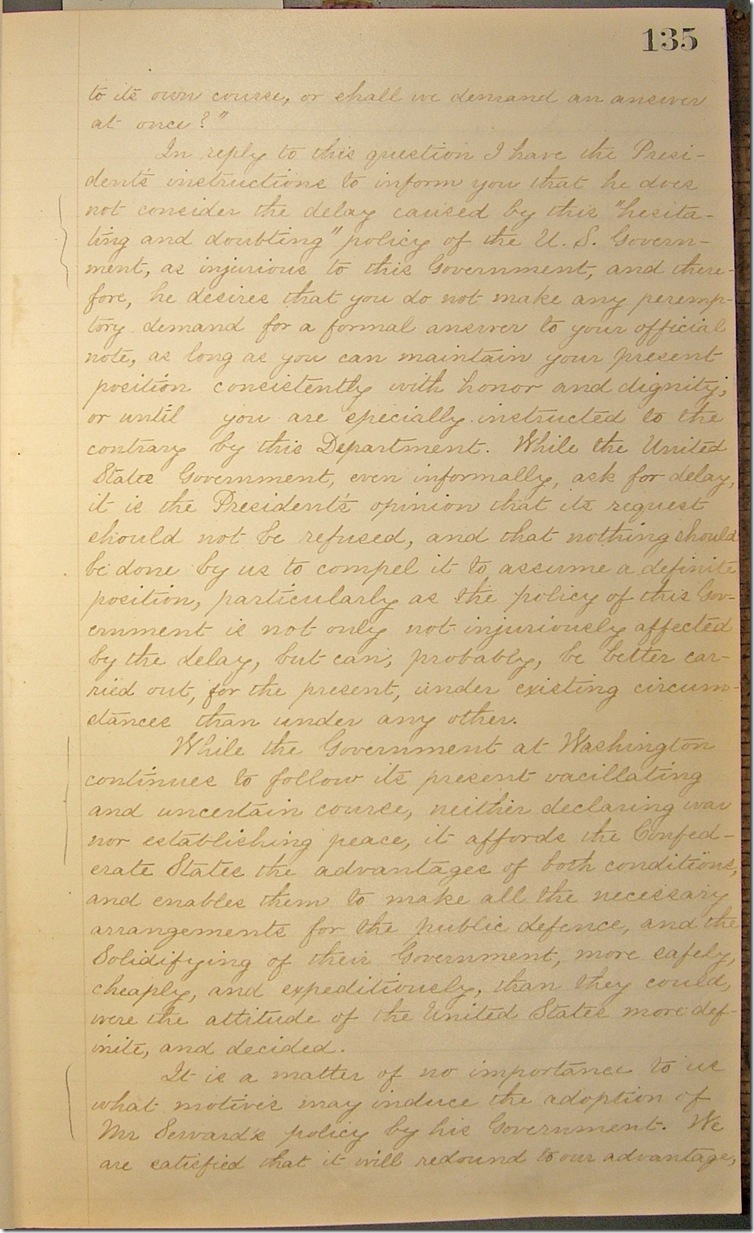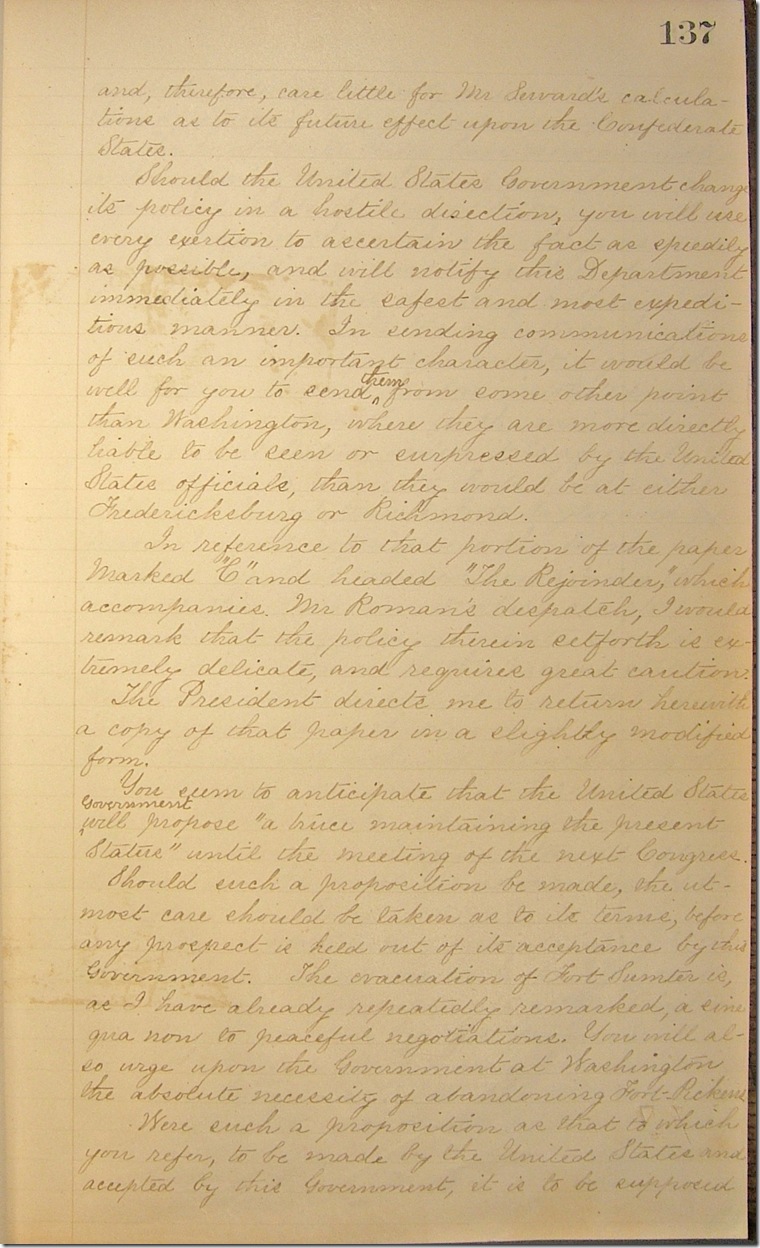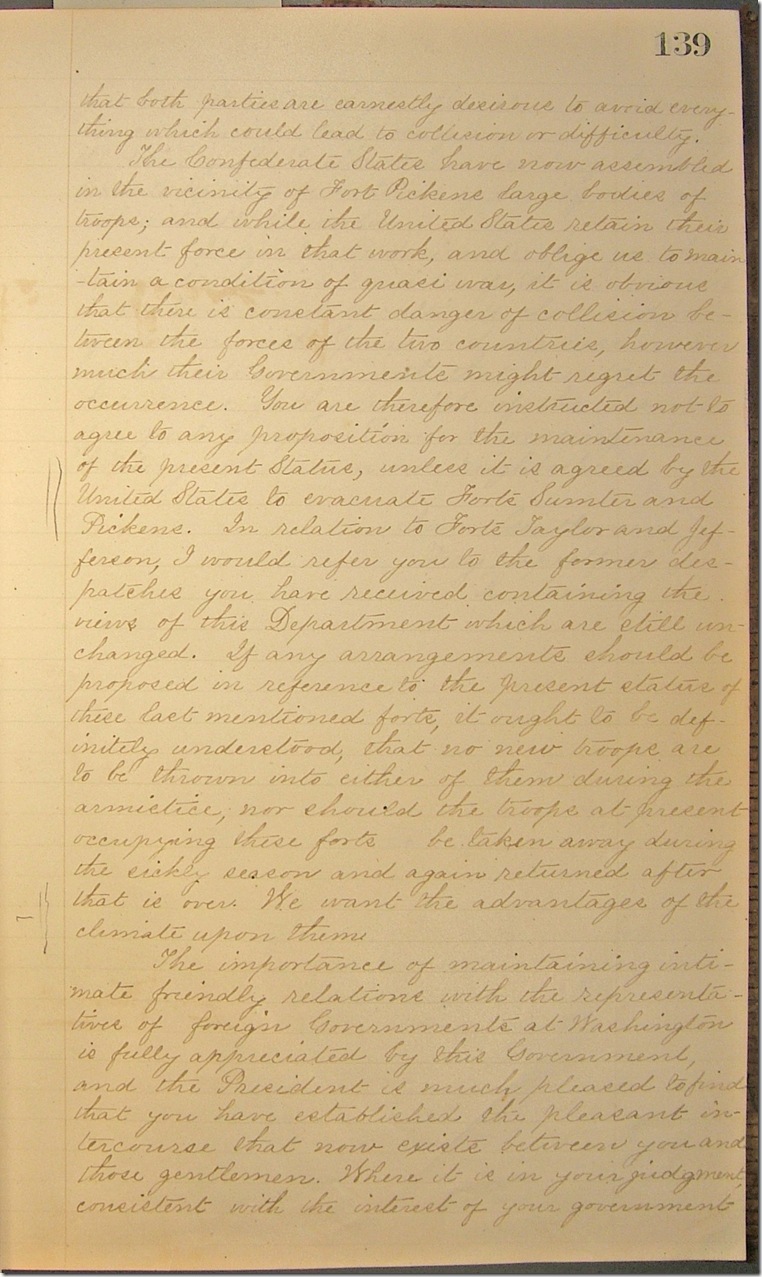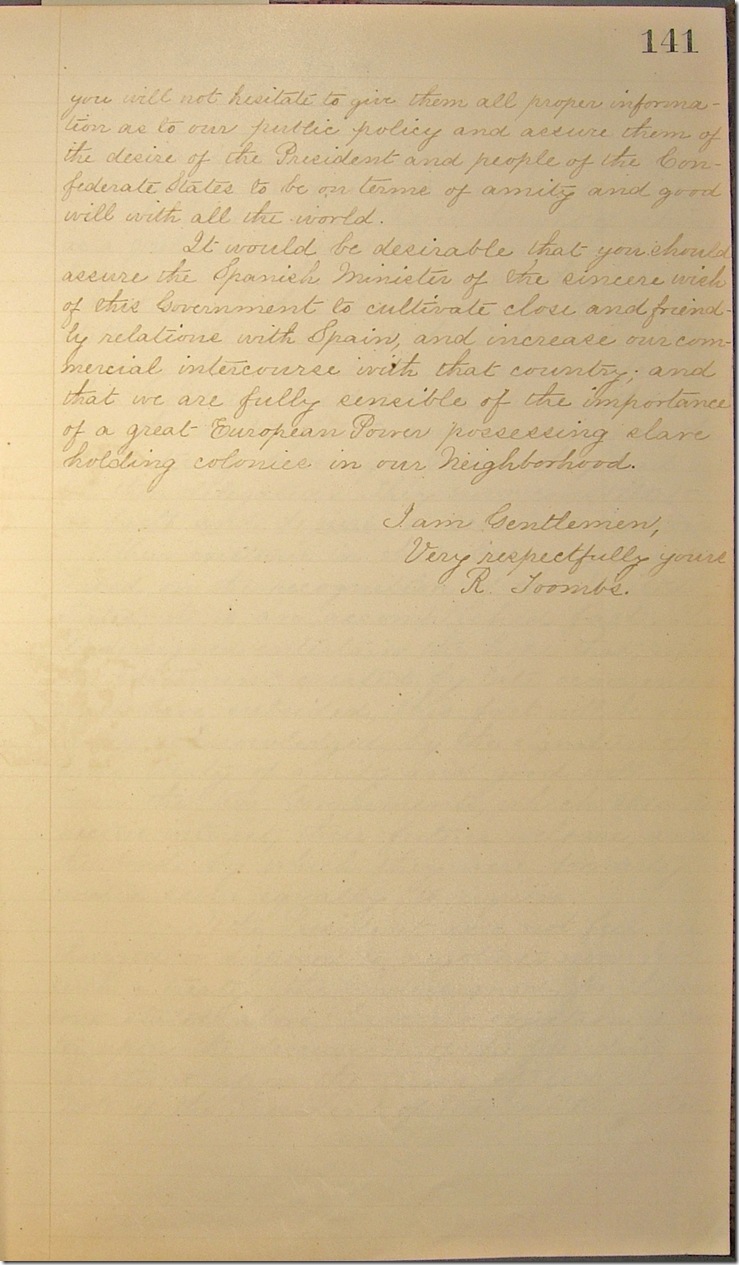During March and April 1861, after seven states had seceded and formed the Confederate States of America but before war broke out, Confederate Secretary of State Robert Toombs appointed Martin J. Crawford, John Forsyth, and A.B. Roman as Commissioners of the Confederate States to Washington, DC. Their purpose was to seek diplomatic recognition from the United States and negotiate peace—at least for a while. Central to the question of peace or war was whether the United States would continue to retain claim over federal forts located in the southern states that had seceded, including Fort Pickens in Florida and Fort Sumter in South Carolina. This item is transcribed from a letter book maintained by J.T. Pickett, secretary to the commissioners, containing copies of 72 letters, dispatches, and telegrams sent and received by the commissioners from the time of their appointment to the demand for the evacuation of Fort Sumter.
Transcript (excerpt):
No 2.
Department of State.
Montgomery April 2 1861
Hon Martin J Crawford.
“ John Forsyth.
“ A. B. Roman.
Commissioners of the Confederate States.
&c. &c. &c.
Gentlemen
I have to acknowledge the receipt of your dispatch (No 7) of the 26th ult, signed by Messrs Crawford and Roman, and of that of the 29th ult, signed by Mr Roman alone, together with the paper attached to the latter marked “C.”
[…]
The President feels very much gratified by the friendly disposition evinced by the representative of the foreign Government, whom you mention, by the intervention of his good offices to bring about the interview with Mr Roman, which Mr Seward sought and afterwards declined. It is almost needless to remark that the unofficial interference of that Gentleman shall be regarded as an inviolable secret.
In your dispatch of the 26th ult, you remark: “The question now, which we wish to submit to you is, whether we shall dally longer with a Government hesitating and doubting as to its own course, or shall we demand an answer at once?”
In reply to this question I have the President’s instructions to inform you that he does not consider the delay caused by this “hesitating and doubting” policy of the U.S. Government, as injurious to this Government, and therefore, he desires that you do not make any peremptory demand for a formal answer to your official note, as long as you can maintain your present position consistently with honor and dignity, or until you are especially instructed to the contrary by this Department. […]
While the Government at Washington continues to follow its present vacillating and uncertain course, neither declaring war nor establishing peace, it affords the Confederate State the advantages of both conditions, and enables them to make all the necessary arrangement for the public defence, and the Solidifying of their Government, more safely, cheaply, and expeditiously, than they could, were the attitude of the United State more definite, and decided.
[…]
You seem to anticipate that the United States Government will propose “a truce maintaining the present Status” until the meeting of the next Congress.
[…]
Were such a proposition as that to which you refer, to be made by the United States and accepted by this Government, it is to be supposed that both parties are earnestly desirous to avoid everything which could lead to collision or difficulty.
The Confederate States have now assembled in the vicinity of Fort Pickens large bodies of troops; and while the United States retain their present force in that work, and oblige us to maintain a condition of quasi war, it is obvious that there is constant danger of collision between the forces of the two countries, however much their governments might regret the occurrence. You are therefore instructed not to agree to any proposition for the maintenance of the present Status, unless it is agreed by the United States to evacuate Forts Sumter and Pickens. […]
The importance of maintaining intimate friendly relations with the representatives of foreign Governments at Washington is fully appreciated by this Government, and the President is much pleased to find that you have established the pleasant intercourse that now exists between you and those gentlemen. Where it is in your judgment consistent with the interests of your government you will not hesitate to give them all proper information as to our public policy and assure them of the desire of the President and people of the Confederate States to be on terms of amity and good will with all the world.
[…]
I am Gentlemen,
Very Respectfully yours
R. Toombs.
Citation:Commissioners of the Confederate States of America to the Government of the United States, letter book.Washington, D.C., Feb 27-April 11, 1861.AMS 811/20
